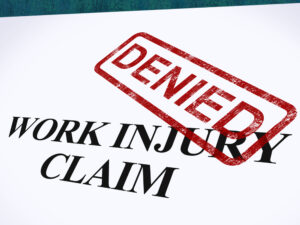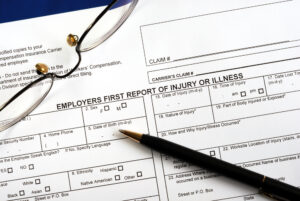
Almost all Florida businesses must offer workers’ compensation coverage, which provides benefits for employees after work-related injuries. It reimburses injury-related expenses for people hurt on the job. The benefits range depending on the scope of the injury. Some workers only need temporary disability coverage for a few weeks, while those with serious injuries might need permanent care and may even struggle to work again. Workers’ comp insurance can help pay for medical bills, lost wages, disability benefits, funeral care, and ongoing medical needs.
While most businesses are required by law to offer it, there are exclusions. Specifics vary by location, so it’s recommended to familiarize yourself with your state’s rules. In Florida, businesses with more than four employees must buy workers’ compensation insurance. Construction companies are required to offer workers’ comp coverage, regardless of how many employees they have. Some small businesses opt-in to workers’ comp even though they aren’t legally obligated to do so because workers’ compensation insurance benefits both business owners and employees.
In most states, including Florida, workers’ comp is designed to reduce the strain on the court system. Workers cannot sue for pain and suffering, and employers can’t sue their workers after they’re injured. As a result, injured workers receive immediate care regardless of who’s at fault for the incident. Workers’ comp insurance helps all parties after a workplace injury, but some businesses still forgo it even though noncompliance carries severe punishment.
Say you’re injured at work and need to be hospitalized. You try to file a workers’ comp claim and find out your employer doesn’t have the right kind of workers’ comp coverage — or worse, they don’t have any coverage at all. While you can sue them, that won’t pay your lost wages or hospital bills as quickly as a workers’ compensation insurance company would. Knowing whether your place of employment carries adequate workers’ compensation insurance is a necessity. For larger companies, the human resources department will be able to answer your questions. Small business employees might have to talk to their direct supervisor or CEO to determine whether there’s adequate workers’ compensation coverage.
If you find out your employer isn’t complying with Florida’s workers’ compensation laws, you should report them to Florida’s Division of Workers’ Compensation. Referrals can be submitted online anonymously and will trigger an investigation. If investigators determine that a business isn’t carrying adequate workers’ compensation coverage, they’ll issue a stop-work order and forbid the company from operating until they obtain workers’ comp insurance. They’ll also be subject to a penalty equal to double the amount that would’ve been paid in premiums in the preceding two years.
Related: Should I Hire a Florida Workers’ Compensation Lawyer?
There are some instances where you may have a difficult time receiving compensation. If you fail a drug test or don’t report an injury immediately, it will be harder to get the payment you need. Insurance companies will also challenge your claim if you have pre-existing injuries that would have contributed to your injury even though you still may be entitled to benefits. Some workers’ compensation cases are straightforward and quickly resolved, but others require the help of an experienced workers’ comp lawyer. Scott R. Marshall has served Floridians for more than 20 years. Call (727) 772-5900 for a free consultation or visit us online.

At the Scott R. Marshall law firm, we represent people around Florida in claims arising out of workers’ compensation, personal injury and wrongful death. Our firm believes the best way to represent clients is to take the time to get to know them. We deal directly with our clients on all legal issues and provide professional, personal and aggressive representation.














Comments for this article are closed.